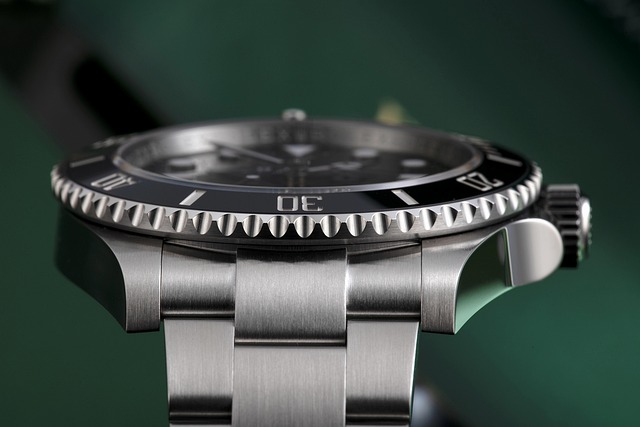How To Find Affordable Police Impounded Cars
Police impounded vehicles represent one of the most overlooked opportunities for finding affordable cars in today's market. When vehicles are abandoned, seized for unpaid fines, or held as evidence in legal cases, they eventually make their way to police auctions where savvy buyers can purchase them at significantly reduced prices. Understanding how to navigate this process effectively can help you secure a reliable vehicle while saving thousands of dollars compared to traditional dealership purchases.

What Is the Police Impound Process?
Exploring the police impound process begins with understanding why vehicles end up in police custody. Law enforcement agencies impound cars for various reasons, including parking violations, expired registration, DUI arrests, or when vehicles are abandoned on public property. Once impounded, owners typically have 30 days to reclaim their vehicles by paying associated fees and fines. When vehicles remain unclaimed beyond this period, they become eligible for public auction to recover storage costs and clear impound lot space.
The impound process follows strict legal procedures that vary by jurisdiction. Police departments must provide proper notification to registered owners and lienholders before proceeding with auctions. This systematic approach ensures that vehicles sold at police auctions have clear titles, though buyers should always verify title status before bidding.
Where Can You Find Reliable Impound Listings?
Identifying reliable sources for impound listings requires knowing where to look and what to avoid. Most police departments maintain official websites that post upcoming auction schedules, vehicle inventories, and bidding procedures. Municipal government websites often feature dedicated sections for surplus property sales, including impounded vehicles.
Professional auction companies like Manheim, Copart, and IAA frequently handle police vehicle disposals under contract with law enforcement agencies. These companies provide detailed online catalogs with vehicle descriptions, photos, and condition reports. GovDeals.com serves as another reputable platform where government agencies, including police departments, list surplus vehicles for public auction.
Local newspapers and community bulletin boards sometimes announce upcoming police auctions, though online sources typically provide more comprehensive information. Always verify auction legitimacy by contacting the police department directly, as fraudulent auction websites occasionally target unsuspecting buyers.
What Risks Should You Consider?
Understanding potential risks of buying impounded vehicles helps buyers make informed decisions and avoid costly mistakes. Impounded cars often lack maintenance records, making it difficult to assess mechanical condition and repair history. Vehicles may have been sitting in impound lots for months without proper storage procedures, potentially leading to battery failure, tire damage, or engine problems.
Legal complications can arise if previous owners had outstanding loans or if vehicles were involved in criminal activities. While police auctions typically provide clear titles, buyers should research vehicle history reports and lien information before bidding. Some impounded vehicles may require expensive repairs to pass state inspections or emissions tests.
Storage conditions at impound facilities vary significantly, with outdoor lots exposing vehicles to weather damage, vandalism, or theft of valuable components. Interior damage from break-ins or neglect by previous owners is common, particularly in abandoned vehicles.
How Do You Assess Vehicle Value and Condition?
Evaluating condition and value of impounded cars requires thorough inspection and realistic price assessment. Most police auctions allow preview periods where potential buyers can examine vehicles before bidding. Bring a knowledgeable mechanic or experienced car buyer to help identify potential problems and estimate repair costs.
Check basic systems including engine operation, transmission function, brake condition, and electrical components. Look for signs of accident damage, rust, or flood exposure that might not be immediately apparent. Document any issues discovered during inspection and factor repair costs into your maximum bid amount.
Research comparable vehicle values using resources like Kelley Blue Book, Edmunds, or local classified advertisements. Consider that impounded vehicles typically sell for 20-40% below market value, but factor in additional costs like auction fees, transportation, and immediate repairs needed to make the vehicle roadworthy.
| Auction Service | Average Vehicle Types | Typical Price Range |
|---|---|---|
| GovDeals.com | Sedans, SUVs, Trucks | $500 - $8,000 |
| Manheim Government | Fleet vehicles, Luxury cars | $1,000 - $15,000 |
| Local Police Direct | Mixed inventory | $300 - $6,000 |
| Copart Public Auctions | Damaged/Salvage vehicles | $200 - $5,000 |
Prices, rates, or cost estimates mentioned in this article are based on the latest available information but may change over time. Independent research is advised before making financial decisions.
What Expert Strategies Work Best?
Expert tips for navigating impound auctions can significantly improve your chances of securing a good deal while avoiding common pitfalls. Set a firm budget before attending auctions and stick to it, as competitive bidding environments often encourage overspending. Include additional costs like auction fees (typically 5-10% of purchase price), transportation, registration, and immediate repairs in your budget calculations.
Arrive early for vehicle previews and bring necessary tools like flashlights, basic diagnostic equipment, and measuring devices. Focus on vehicles with complete documentation and avoid those with missing keys or titles unless you understand the replacement process and associated costs.
Build relationships with regular auction attendees and auctioneers who can provide valuable insights about vehicle history and upcoming inventory. Consider attending several auctions as an observer before participating to understand bidding patterns and typical selling prices in your area.
Register for auctions well in advance and understand payment requirements, which often include immediate cash or certified funds. Some auctions require pre-qualification or deposits from new bidders.
Police impound auctions offer genuine opportunities for finding affordable vehicles, but success requires preparation, realistic expectations, and careful evaluation of each potential purchase. By understanding the impound process, identifying reliable sources, assessing risks appropriately, and following expert strategies, buyers can navigate this unique marketplace effectively while avoiding common mistakes that lead to expensive problems.




